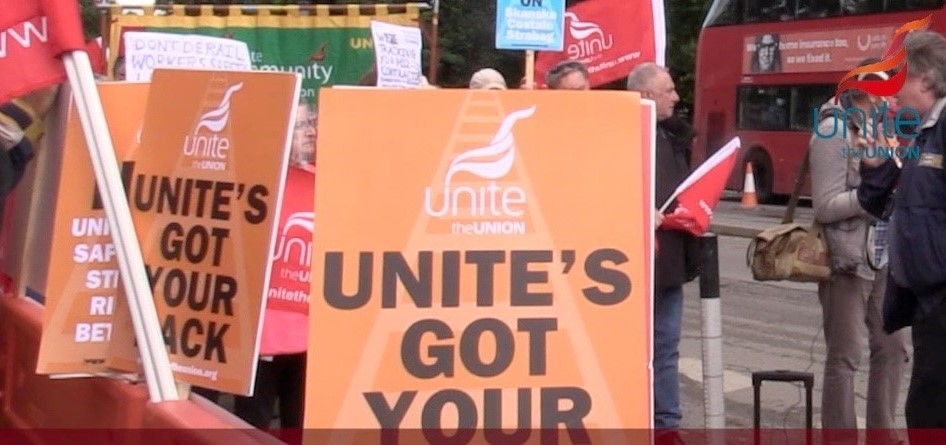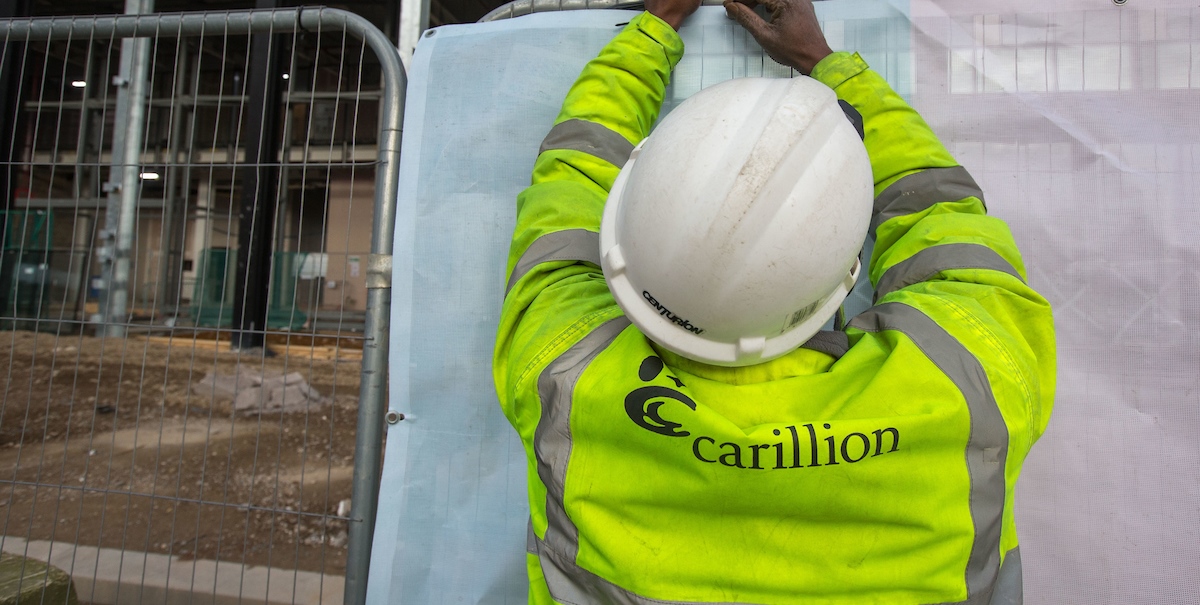â€Govt should hang head in shame’
The government has heeded trade unions’ calls to set up a national taskforce in support of workers and businesses hit by outsourcing firm Carillion’s collapse.
Unite has welcomed that the taskforce will include trade union representation – alongside voices from trade associations, businesses, government and lenders – and has demanded ministers waste no time in taking action to contain the crisis.
The news that a taskforce has been established came as the business secretary Greg Clark was forced to admit in an interview on the BBC Radio 4 Today programme this morning that ministers never met with any Carillion executives after the beleaguered firm issued the first of a series of profit warnings last summer.
Clark also refused to answer whether any of the estimated 30,000 businesses who are owed money by Carillion will be able to claw any of that money back.
After the first meeting of the taskforce yesterday (January 18) banks such as RBS, HSBC and Barclays announced that they would offer ÂŁ225m in support to these businesses caught up in the Carillion crisis.
But the relief will only go so far – banks said they will use the funds only to waive fees on debts and suspend loan repayments for a finite period of time.
That these businesses will not likely be repaid what they were owed by Carillion has prompted fears of a job loss contagion that could spread far and wide.
Flora-Tec, a firm that gritted and cleared snow for Carillion at schools, prisons, courts and hospitals, is one such small business whose future is under threat – Carillion owed the company nearly £1m.
Flora-Tec owner Andy Bradley said that the day Carillion collapsed on Monday (January 15), he had to make 10 out of 90 people redundant. Now, if he isn’t paid what is owed him, his business will likely go the same way as Carillion – bust.
“We’ve got a profitable business, but we can’t trade out of a black hole of £1m … I set up the business 20 years ago from nothing and now it’s going to go back to nothing,” he told the Guardian.
He explained that after Carillion’s first profit warning last summer, he had considered scaling back his involvement with the outsourcing company. But, Bradley said that the fact the government continued to give Carillion such large contracts and continued to encourage small business’ participation with these contracts quelled his concerns.
“The government should hang its head in shame,” he said. “We are the people the government let down. Loads of SMEs will go out of business over this.”
In today’s Real Britain column in the Mirror, journalist Ros-Wynne Jones spoke to another of the tens of thousands of victims of the Carillion crisis – a hospital porter who’s worked for Carillion since the service he provides was first outsourced in 1999.
Worries for future
Although his wages are guaranteed as a public sector worker for now, he worries about his future and his pension.
“I’ve got 25 years’ pension to worry about,” he told Wynn-Jones.
“No one’s got a clue what’s going on. We don’t know who’s going to buy us… All the staff have been struggling through the winter crisis at the hospital and now this.”
Unite has demanded that the taskforce now set up by the government help the many tens of thousands of workers and business whose futures are now at risk.
“The formation of a task force, combined with moves to ensure banks provide sub-contractors with a sympathetic ear are practical steps that Unite demanded to provide temporary relief for the many firms in Carillion’s supply chain,” said Unite general secretary Len McCluskey.
“There should be no delay in setting this task force to work so that it can provide the practical support urgently needed to safeguard jobs and businesses, to keep services supplied and building sites ticking over,” he added.
“The government must use the taskforce to ensure those caught up by Carillion’s collapse avoid financial ruin and that mothballed sites start humming with activity again as a matter of urgency.
“A great many sub-contractors and suppliers will go under, robbing workers of their livelihoods and communities of the companies that are their lifeblood, if there isn’t a commitment to longer term financial assistance,” McCluskey warned.
“Workers, communities and businesses will be still dealing with the wreckage of Carillion in the months and years to come.
He went on to highlight that the whole Carillion scandal “raises fundamental questions about the corporate governance of British companies and public services being run for profit instead of people.
“The firm built its business on reckless expansion, fuelled by debt and undercutting, wafer-thin profit margins, based on minimum pay for largely female workforces in many sectors, and the blacklisting of workers,” McCluskey noted.
“A public inquiry is needed to get to the bottom of how a company that hoovered up vats of public money and repeatedly alerted the government to its own financial shortcomings got its hands on so much of the public sector and taxpayers’ cash.”
 Like
Like Follow
Follow


